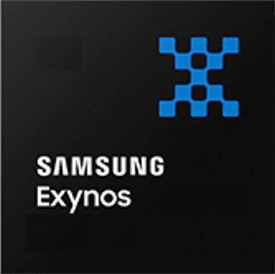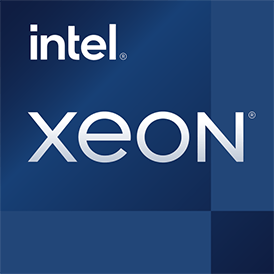Samsung Exynos 1330 vs Intel Xeon E7-2890 v2
Last updated:
CPU comparison with benchmarks

|

|
|
| Samsung Exynos 1330 | Intel Xeon E7-2890 v2 | |
CPU comparisonSamsung Exynos 1330 or Intel Xeon E7-2890 v2 - which processor is faster? In this comparison we look at the differences and analyze which of these two CPUs is better. We compare the technical data and benchmark results.
The Samsung Exynos 1330 has 8 cores with 8 threads and clocks with a maximum frequency of 2.40 GHz. Up to GB of memory is supported in 0 memory channels. The Samsung Exynos 1330 was released in Q1/2023. The Intel Xeon E7-2890 v2 has 15 cores with 30 threads and clocks with a maximum frequency of 3.40 GHz. The CPU supports up to 1536 GB of memory in 4 memory channels. The Intel Xeon E7-2890 v2 was released in Q1/2014. |
||
| Samsung Exynos (47) | Family | Intel Xeon E7 (20) |
| Samsung Exynos 13xx (2) | CPU group | Intel Xeon E7 v2 (20) |
| 7 | Generation | 4 |
| Cortex-A78/-A55 | Architecture | Ivy Bridge EX |
| Mobile | Segment | Desktop / Server |
| -- | Predecessor | -- |
| -- | Successor | -- |
|
|
||
CPU Cores and Base FrequencyThe Samsung Exynos 1330 has 8 CPU cores and can calculate 8 threads in parallel. The clock frequency of the Samsung Exynos 1330 is 2.40 GHz while the Intel Xeon E7-2890 v2 has 15 CPU cores and 30 threads can calculate simultaneously. The clock frequency of the Intel Xeon E7-2890 v2 is at 2.80 GHz (3.40 GHz). |
||
| Samsung Exynos 1330 | Characteristic | Intel Xeon E7-2890 v2 |
| 8 | Cores | 15 |
| 8 | Threads | 30 |
| hybrid (big.LITTLE) | Core architecture | normal |
| No | Hyperthreading | Yes |
| No | Overclocking ? | No |
| 2.40 GHz 2x Cortex-A78 |
A-Core | 2.80 GHz (3.40 GHz) |
| 2.00 GHz 6x Cortex-A55 |
B-Core | -- |
Internal GraphicsThe Samsung Exynos 1330 or Intel Xeon E7-2890 v2 has integrated graphics, called iGPU for short. The iGPU uses the system's main memory as graphics memory and sits on the processor's die. |
||
| ARM Mali-G68 MP2 | GPU | no iGPU |
| GPU frequency | -- | |
| -- | GPU (Turbo) | -- |
| Vallhall 2 | GPU Generation | -- |
| 6 nm | Technology | |
| 1 | Max. displays | |
| 2 | Compute units | -- |
| 32 | Shader | -- |
| No | Hardware Raytracing | No |
| No | Frame Generation | No |
| -- | Max. GPU Memory | -- |
| 12 | DirectX Version | -- |
Hardware codec supportA photo or video codec that is accelerated in hardware can greatly accelerate the working speed of a processor and extend the battery life of notebooks or smartphones when playing videos. |
||
| ARM Mali-G68 MP2 | GPU | no iGPU |
| Decode / Encode | Codec h265 / HEVC (8 bit) | No |
| Decode / Encode | Codec h265 / HEVC (10 bit) | No |
| Decode / Encode | Codec h264 | No |
| Decode / Encode | Codec VP9 | No |
| Decode / Encode | Codec VP8 | No |
| Decode | Codec AV1 | No |
| Decode / Encode | Codec AVC | No |
| Decode / Encode | Codec VC-1 | No |
| Decode / Encode | Codec JPEG | No |
Memory & PCIeThe Samsung Exynos 1330 can use up to GB of memory in 0 memory channels. The maximum memory bandwidth is --. The Intel Xeon E7-2890 v2 supports up to 1536 GB of memory in 4 memory channels and achieves a memory bandwidth of up to 51.2 GB/s. |
||
| Samsung Exynos 1330 | Characteristic | Intel Xeon E7-2890 v2 |
| LPDDR5, LPDDR4X | Memory | DDR3-1600 |
| Max. Memory | 1536 GB | |
| 0 | Memory channels | 4 (Quad Channel) |
| -- | Max. Bandwidth | 51.2 GB/s |
| No | ECC | Yes |
| -- | L2 Cache | -- |
| -- | L3 Cache | 38.00 MB |
| -- | PCIe version | -- |
| -- | PCIe lanes | -- |
| -- | PCIe Bandwidth | -- |
Thermal ManagementThe thermal design power (TDP for short) of the Samsung Exynos 1330 is --, while the Intel Xeon E7-2890 v2 has a TDP of 155 W. The TDP specifies the necessary cooling solution that is required to cool the processor sufficiently. |
||
| Samsung Exynos 1330 | Characteristic | Intel Xeon E7-2890 v2 |
| -- | TDP (PL1 / PBP) | 155 W |
| -- | TDP (PL2) | -- |
| -- | TDP up | -- |
| -- | TDP down | -- |
| -- | Tjunction max. | -- |
Technical detailsThe Samsung Exynos 1330 is manufactured in 5 nm and has 0.00 MB cache. The Intel Xeon E7-2890 v2 is manufactured in 22 nm and has a 38.00 MB cache. |
||
| Samsung Exynos 1330 | Characteristic | Intel Xeon E7-2890 v2 |
| 5 nm | Technology | 22 nm |
| Unknown | Chip design | Monolithic |
| Armv8-A (64 bit) | Instruction set (ISA) | x86-64 (64 bit) |
| -- | ISA extensions | SSE4.1, SSE4.2, AVX |
| -- | Socket | LGA 2011 |
| None | Virtualization | VT-x, VT-x EPT, VT-d |
| No | AES-NI | Yes |
| Android, Windows ARM | Operating systems | Windows 10, Linux |
| Q1/2023 | Release date | Q1/2014 |
| -- | Release price | 4700 $ |
| show more data | show more data | |
Rate these processors
Geekbench 5, 64bit (Single-Core)
Geekbench 5 is a cross plattform benchmark that heavily uses the systems memory. A fast memory will push the result a lot. The single-core test only uses one CPU core, the amount of cores or hyperthreading ability doesn't count.
|
|
Samsung Exynos 1330
8C 8T @ 2.40 GHz |
||
|
|
Intel Xeon E7-2890 v2
15C 30T @ 3.40 GHz |
||
Geekbench 5, 64bit (Multi-Core)
Geekbench 5 is a cross plattform benchmark that heavily uses the systems memory. A fast memory will push the result a lot. The multi-core test involves all CPU cores and taks a big advantage of hyperthreading.
|
|
Samsung Exynos 1330
8C 8T @ 2.40 GHz |
||
|
|
Intel Xeon E7-2890 v2
15C 30T @ 3.40 GHz |
||
Geekbench 6 (Single-Core)
Geekbench 6 is a benchmark for modern computers, notebooks and smartphones. What is new is an optimized utilization of newer CPU architectures, e.g. based on the big.LITTLE concept and combining CPU cores of different sizes. The single-core benchmark only evaluates the performance of the fastest CPU core, the number of CPU cores in a processor is irrelevant here.
|
|
Samsung Exynos 1330
8C 8T @ 2.40 GHz |
||
|
|
Intel Xeon E7-2890 v2
15C 30T @ 3.40 GHz |
||
Geekbench 6 (Multi-Core)
Geekbench 6 is a benchmark for modern computers, notebooks and smartphones. What is new is an optimized utilization of newer CPU architectures, e.g. based on the big.LITTLE concept and combining CPU cores of different sizes. The multi-core benchmark evaluates the performance of all of the processor's CPU cores. Virtual thread improvements such as AMD SMT or Intel's Hyper-Threading have a positive impact on the benchmark result.
|
|
Samsung Exynos 1330
8C 8T @ 2.40 GHz |
||
|
|
Intel Xeon E7-2890 v2
15C 30T @ 3.40 GHz |
||
Devices using this processor |
|
| Samsung Exynos 1330 | Intel Xeon E7-2890 v2 |
| Unknown | Unknown |
Popular comparisons containing this CPUs
back to index
